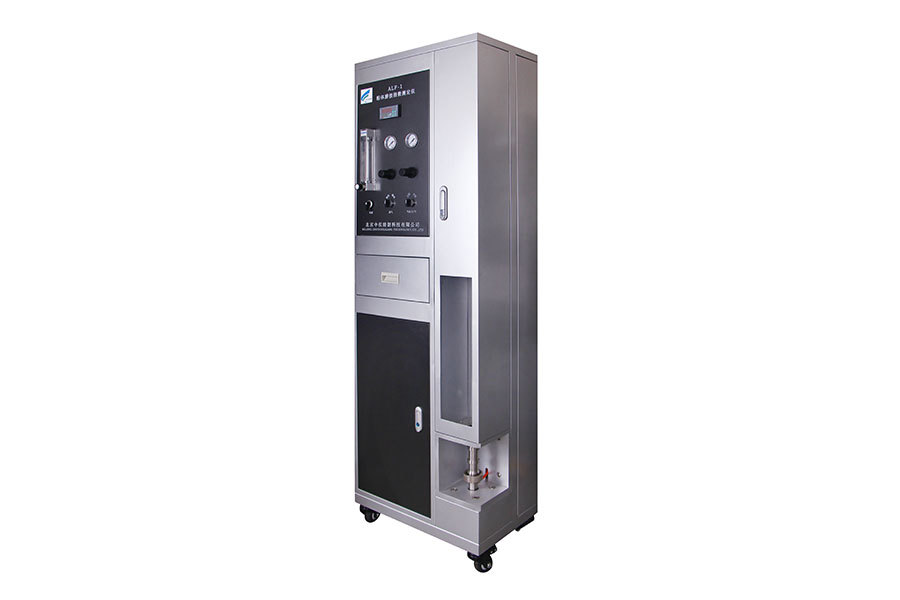Understanding Powder Physical Properties Testing Equipment: Essential Tools for Quality Assurance
Sep 30,2025

Powder physical properties testing equipment plays a vital role in various industries, particularly in electrical and electronic sectors where materials are often utilized in powdered form. These tools are designed to assess various characteristics of powders, including particle size, density, flowability, and moisture content. Accurate measurements of these properties are essential for determining how powders will behave during processing and in the final product.
One of the primary functions of powder physical properties testing equipment is to measure particle size distribution. The size and shape of particles can significantly impact the performance of the final product. For instance, in electrical components, uniform particle size can lead to better conductivity and enhanced performance. Techniques such as laser diffraction or sieve analysis are commonly employed to obtain precise particle size data.
Another critical property to assess is bulk density. This measurement gives insights into how much material can be packed into a given volume, which is essential for storage and transportation considerations. The equipment used for bulk density testing often includes specialized containers and scales to ensure accuracy. A comprehensive understanding of bulk density can help manufacturers optimize their processes and reduce waste.
Flowability, or the ability of a powder to flow smoothly, is another important property that affects both processing and end-use applications. Powders with poor flowability can lead to inconsistencies in manufacturing, impacting the quality of the final product. Testing equipment designed to evaluate flow characteristics often utilizes methods such as the Hall flow test or the Carr index, helping to identify powders that may require additives or changes in formulation to improve performance.
Moisture content is equally important as it can influence the stability and shelf life of powder-based products. Excess moisture can lead to clumping, reduced shelf life, and in severe cases, spoilage. Various techniques such as thermogravimetric analysis (TGA) or Karl Fischer titration are utilized to measure moisture content accurately.
In conclusion, powder physical properties testing equipment is indispensable for manufacturers aiming to ensure the quality and reliability of their products. By accurately measuring properties such as particle size, bulk density, flowability, and moisture content, businesses can make informed decisions that enhance product performance and consistency. Investing in advanced testing equipment not only improves quality control processes but also contributes to the overall efficiency and success of manufacturing operations in the electrical and electronic sectors.
One of the primary functions of powder physical properties testing equipment is to measure particle size distribution. The size and shape of particles can significantly impact the performance of the final product. For instance, in electrical components, uniform particle size can lead to better conductivity and enhanced performance. Techniques such as laser diffraction or sieve analysis are commonly employed to obtain precise particle size data.
Another critical property to assess is bulk density. This measurement gives insights into how much material can be packed into a given volume, which is essential for storage and transportation considerations. The equipment used for bulk density testing often includes specialized containers and scales to ensure accuracy. A comprehensive understanding of bulk density can help manufacturers optimize their processes and reduce waste.
Flowability, or the ability of a powder to flow smoothly, is another important property that affects both processing and end-use applications. Powders with poor flowability can lead to inconsistencies in manufacturing, impacting the quality of the final product. Testing equipment designed to evaluate flow characteristics often utilizes methods such as the Hall flow test or the Carr index, helping to identify powders that may require additives or changes in formulation to improve performance.
Moisture content is equally important as it can influence the stability and shelf life of powder-based products. Excess moisture can lead to clumping, reduced shelf life, and in severe cases, spoilage. Various techniques such as thermogravimetric analysis (TGA) or Karl Fischer titration are utilized to measure moisture content accurately.
In conclusion, powder physical properties testing equipment is indispensable for manufacturers aiming to ensure the quality and reliability of their products. By accurately measuring properties such as particle size, bulk density, flowability, and moisture content, businesses can make informed decisions that enhance product performance and consistency. Investing in advanced testing equipment not only improves quality control processes but also contributes to the overall efficiency and success of manufacturing operations in the electrical and electronic sectors.
PREVIOUS:
Contact Us








